Curated OER
Toward a Sustainable Agriculture
Students analyze organic production systems. In this organic agriculture lesson, students examine key organic practices for both crop and livestock. This lesson includes 5 different activities, 4 critical thinking questions and...
Curated OER
Not Only a Drought
Pupils explore the events that occurred during the Dust Bowl and differentiate between the good and bad agricultural practices. In this Dust Bowl lesson plan students participate in activities that shows them how to be good stewards of...
Curated OER
Farming and the Services of a Community (Lesson 5)
Learners identify different types of farms and services of a community. They use a pretend farm scenerio and a worksheet to distinguish between the different types of farms. They also practice using new vocabulary.
Curated OER
Forest Ecology or Who Lives Here?
Pupils explore a hardwood forest. In this forest ecology lesson, students examine the diversity and animals and plants as they explore their habitats at Poricy Park Conservatory. Pupils determine how biodiversity and abiotic elements...
Curated OER
Plants
Third graders study the factors necessary for plant growth and how plants adapt to their environment. They examine ow different plants require different environments to thrive.
Curated OER
Sustainability
Fifth graders investigate the concept of natural resources. They participate in a simulation project to see possible uses. They use the internet to study how Hacienda Verde is used as a model for others for sustainable coffee crops.
Curated OER
Marine & Aquatic Habitats Activities - Walk in the Wetlands
Students research various types of fresh water wetlands and identify the common animal and plant life in these different ecosystems. They further analyze the need to protect these wetlands and explore their varied uses.
Curated OER
What is electrical energy?
Students distinguish between items with and without energy. In this energy lesson, students understand that natural resources power electrical apparatus and that energy needs to be saved.
Curated OER
Earth Pockets
Students identify the Earth's natural resources. In this Earth science lesson, students read the book The Great Kapok Tree and discuss types of natural resources. Students use categories such as wood, paper, and trees and list items that...
Curated OER
The Trail of a Snack Food
High schoolers identify some of their favorite snack foods. Using this information, they discover the resources needed to produce the food. In groups, they research different alternatives to make their favorite food in order to protect...
Curated OER
Solar
Learners study solar energy. For this renewable energy lesson students complete several lab activities using different controls and variables.
Curated OER
Environment
Fifth graders receive a general overview of the world's environmental dilemmas thereby understanding the global implications of their actions. They examine their connection to the ecosystem by looking at the influence of the environment...
Science Buddies
Science Buddies: Career Profile: Soil and Water Conservationist
Soil and water conservation are important in the protection of the earth's natural resources. Read about the careers that study and encourage conservation. Find out about the educational requirements necessary to become a soil or water...
US Department of Agriculture
Nrcs: Soil and Water Resources Conservation Act (Rca)
Provides background to the Soil and Water Resources Conservation Act of 1977 and its later amendments. Describes how input was gathered from various public interest groups. The full report, an information sheet, summaries of meetings,...
Texas A&M University
Texas A&m University: Mulches for Water Conservation
The quality of the food we eat and the water we drink depends upon the quality of our topsoil. By putting a mulch cover on our topsoil, we help to protect this quality. Find out exactly what mulch is, what it can do, and how to properly...
Science Buddies
Science Buddies: Smart Watering: Adjusting Your Sprinklers for Optimal Soil
Use this science fair project to learn how to test your soil to see if it is getting the right amount of water from the sprinklers. Project is set up beginning with an abstract, objective, and introduction, followed by a section on...
CK-12 Foundation
Ck 12: Life Science: Preserving Water Sources
[Free Registration/Login may be required to access all resource tools.] It might seem like there is plenty of water on Earth, but that's not really the case. Water is a limited resource. That means that it is used faster than it is...
US Environmental Protection Agency
Epa: Conservation
Official site with information and resources relating to all aspects of environmental conservation: data, maps and laws. Specific environmental information by zip code provides immediate relevance to your world.
Other
Linking Environment and Farming: Simply Sustainable Soils [Pdf]
With increasing pressure on the world's natural environment and resources it is essential that we develop farming systems that have a low impact on the environment, and are also highly productive in meeting the needs of a growing global...
Kenyon College
Kenyon College: Soil Erosion
Different types of erosion are discussed along with suggested ways to solve erosion problems on farms in this two-page article.
Other
Chebucto: Soil & Water Conservation Society of Halifax
This site provides statistical information about rivers all around the world. Stats include mean discharge, drainage area, and length.
Utah Education Network
Uen: Blowing and Flowing
Students make predictions about the erosion of three types of soil. The three soil types contain varying amounts of vegetation. This investigation requires the construction of an erosion table. The activity takes only 45 minutes, but the...
Curated OER
Soil & Water Conservation Society of Metro Halifax (Swcsmh) Master Homepage
This site provides statistical information about rivers all around the world. Stats include mean discharge, drainage area, and length.
Other
North Carolina Department of Energy and Natural Resources: Dirt Can Be Dirty
Did you know that the #1 pollutant in North Carolina is dirt? When soil is washed into streams and river, it smothers small animals and fish by clogging their gills. Look for bare patches of ground around your home and around your school...


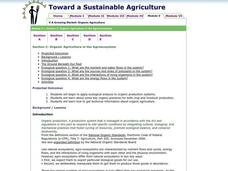


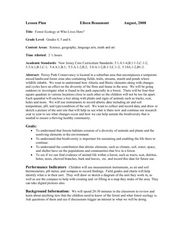



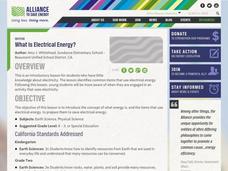
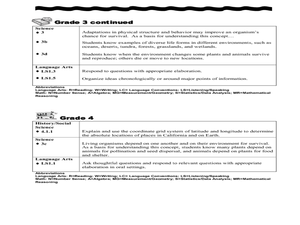



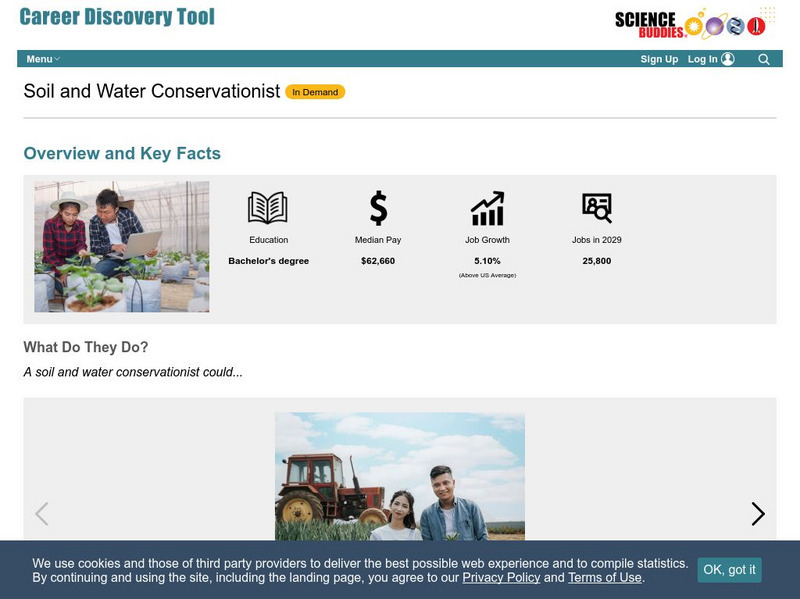
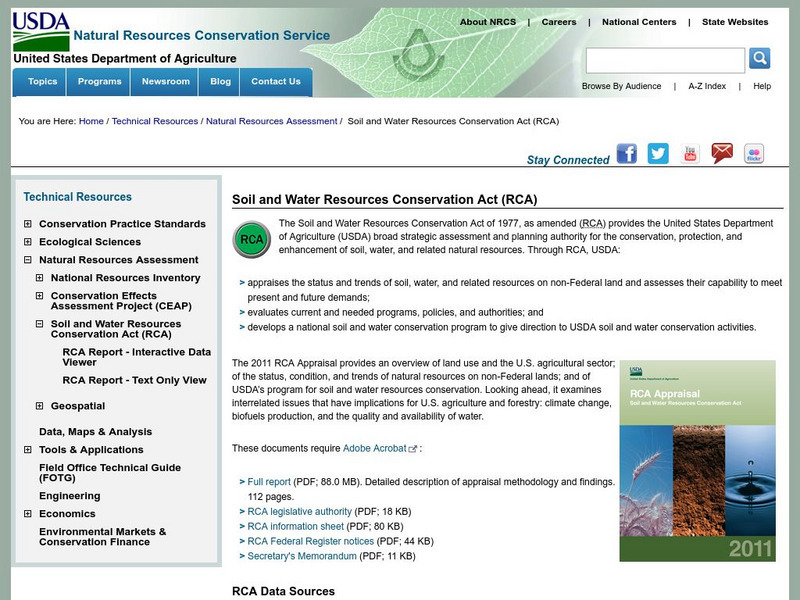
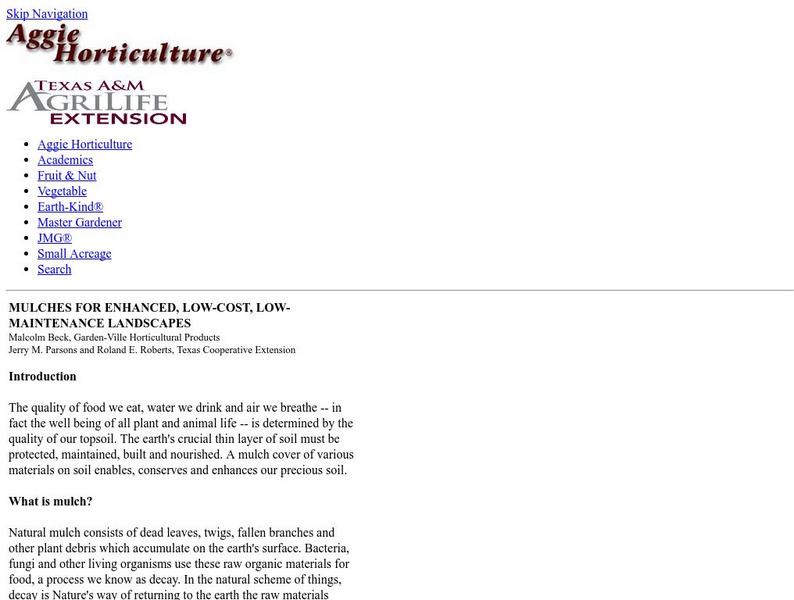

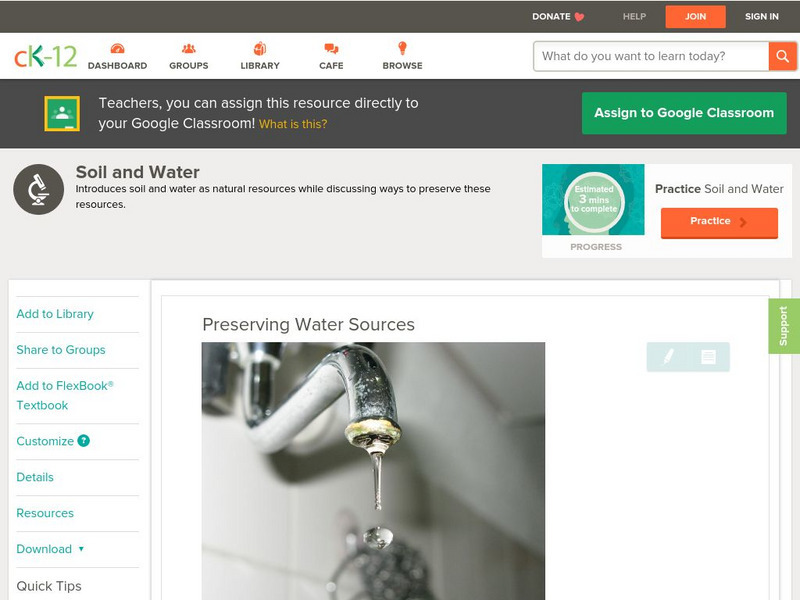

![Linking Environment and Farming: Simply Sustainable Soils [Pdf] Article Linking Environment and Farming: Simply Sustainable Soils [Pdf] Article](https://d15y2dacu3jp90.cloudfront.net/images/attachment_defaults/resource/large/FPO-knovation.png)



